The students in Case Western Reserve University’s undergraduate Class of 2028 aren’t the only new faces on campus this semester. The university also welcomed new tenure-track and tenured faculty members to its ranks, including many at the College of Arts and Sciences.
Earlier this semester, we asked new faculty to share their thoughts on their careers and research endeavors. Get to know some of the new members of Case School of Engineering’s ranks, and read about some of the new faculty members at Case School of Engineering.
Answers have been lightly edited for length.
Yidi Lin
Associate Professor
Dance
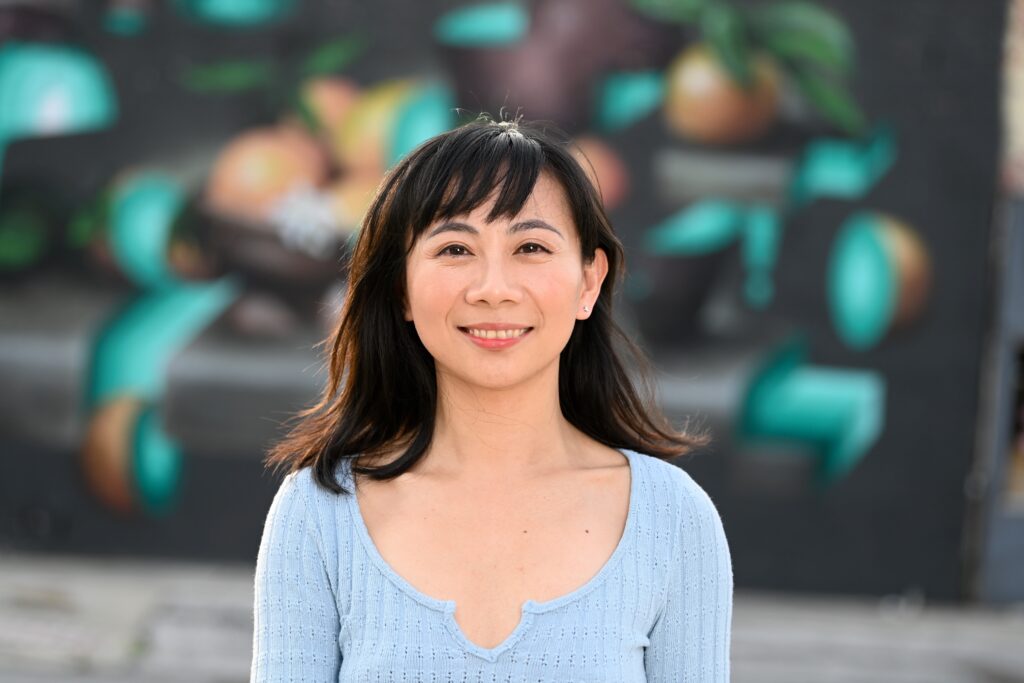
After completing a residency at Pennsylvania State University and teaching as an associate professor at Jacksonville University, Yidi Lin is returning to CWRU as a faculty member, where she earned her Master of Fine Arts degree in dance.
1. What are your specific teaching and/or research areas and interests?
I teach modern dance technique, choreography and dance history. My research interests are dance fusion in choreography, Dalcroze Eurhythmics application in choreography, popular dance and culture. I have always been interested in dance; it is a way of healing and enjoying my life,
2. What do you look forward to at Case Western Reserve University?
To work with a group of excellent colleagues and students, and continue to develop my career.
3. Do you have any personal goals, hobbies, family, interests that you would like to share?
I like to learn languages and learn to play different instruments.
4. What’s one piece of advice you have for students?
One great piece of advice I received as a student was “no question is stupid question.”
Caren Beilin
Assistant Professor
English
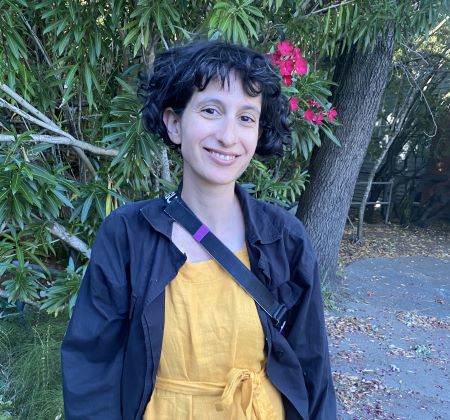
Caren Beilin writes at an intersection of new narrative, feminism and narrative medicine. She is the author of Revenge of the Scapegoat (Dorothy, 2022), Blackfishing the IUD (Wolfman Books, 2019), Spain (Rescue Press, 2018), The University of Pennsylvania (Noemi Press, 2014), and Americans, Guests, or Us (Diagram/New Michigan Press, 2012). Revenge of the Scapegoat was named a 2022 winner of the Vermont Book Award for Fiction.
Her latest novel, SEA, POISON—a serious comedy about gynecological malpractice—is forthcoming from New Directions in 2025.
1. What are your specific teaching and/or research areas and interests?
Most of my books are in some ways narratives about our medical system, so I’m particularly excited by the idea of working with medical students on creative projects and putting forward coursework in the Department of English with foci in narrative medicine and disability poetics. This sort of humanities/STEM bridgework is already well in motion at CWRU, so I’m really excited to learn more about existing cool structures and to participate.
2. What do you look forward to at Case Western Reserve University?
I’m looking forward to teaching narrative medicine and continuing with my new colleagues to build our graduate programs. It’s completely phenomenal that we have excellent funding to offer, a department rife with thrilling talent, and Cleveland as our base.
3. Do you have any personal goals, hobbies, family, interests that you would like to share?
I struggle with this question, always, because I live narrowly, maybe (hopefully) in the rut of making. I like reading, writing, taking walks and staring out. I might also go to a movie.
4. What’s one piece of advice you have for students?
The minute you cease to compartmentalize (my life is over here, my studies are over there) and instead bring your life—its concerns, actual passions, the things you know deeply having experienced or witnessed them, your obsessions, things you love doing or can’t stop thinking about— into your coursework, find a way. That will be a grand minute—maybe a minute when your coursework becomes a life.
Hayden R. Julius
Instructor
Mathematics, Applied Mathematics and Statistics
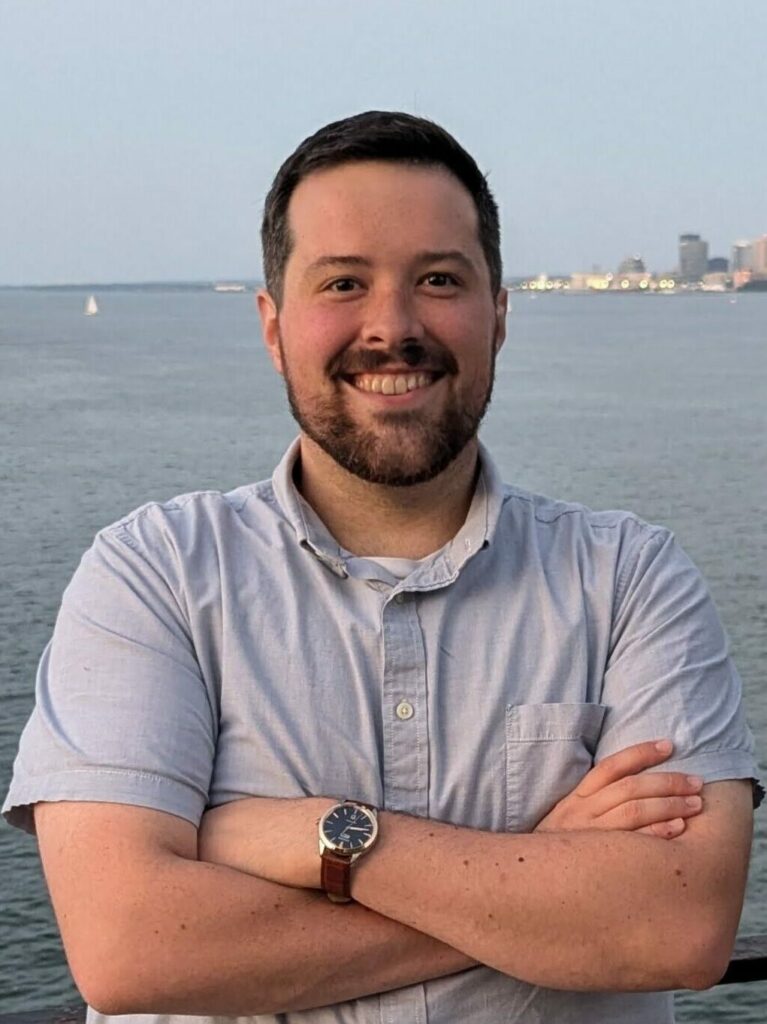
Hayden R. Julius earned his PhD in pure mathematics from Kent State University in 2021. He comes to CWRU from Niagara University, where he served as an experienced undergraduate instructor for precalculus and calculus. His research interests include noncommutative algebra and operator theory, with a focus on linear preserver problems studying maps that preserve fixed products.
1. What are your specific teaching and/or research areas and interests?
I like to study preserver problems on specific kinds of algebraic structures. A typical preserver problem asks: In what ways can I transform an algebraic structure while leaving certain features invariant? This fascinating topic often combines linear algebra, abstract algebra, matrix theory, functional analysis, and many other branches of mathematics.
2. What do you look forward to at Case Western Reserve University?
Getting to know the hardworking and talented students at CWRU.
3. Do you have any personal goals, hobbies, family, interests that you would like to share?
I love brewing pour-over coffee. Obviously for the coffee, but also for the morning ritual.
4. What’s one piece of advice you have for students?
I advise all of my students to get to know their peers, their professors and their administrators. You never know when that personal connection will inspire you to take the next step in your educational journey. Network, network, network!
Helen L. Long
Assistant Professor
Psychological Sciences
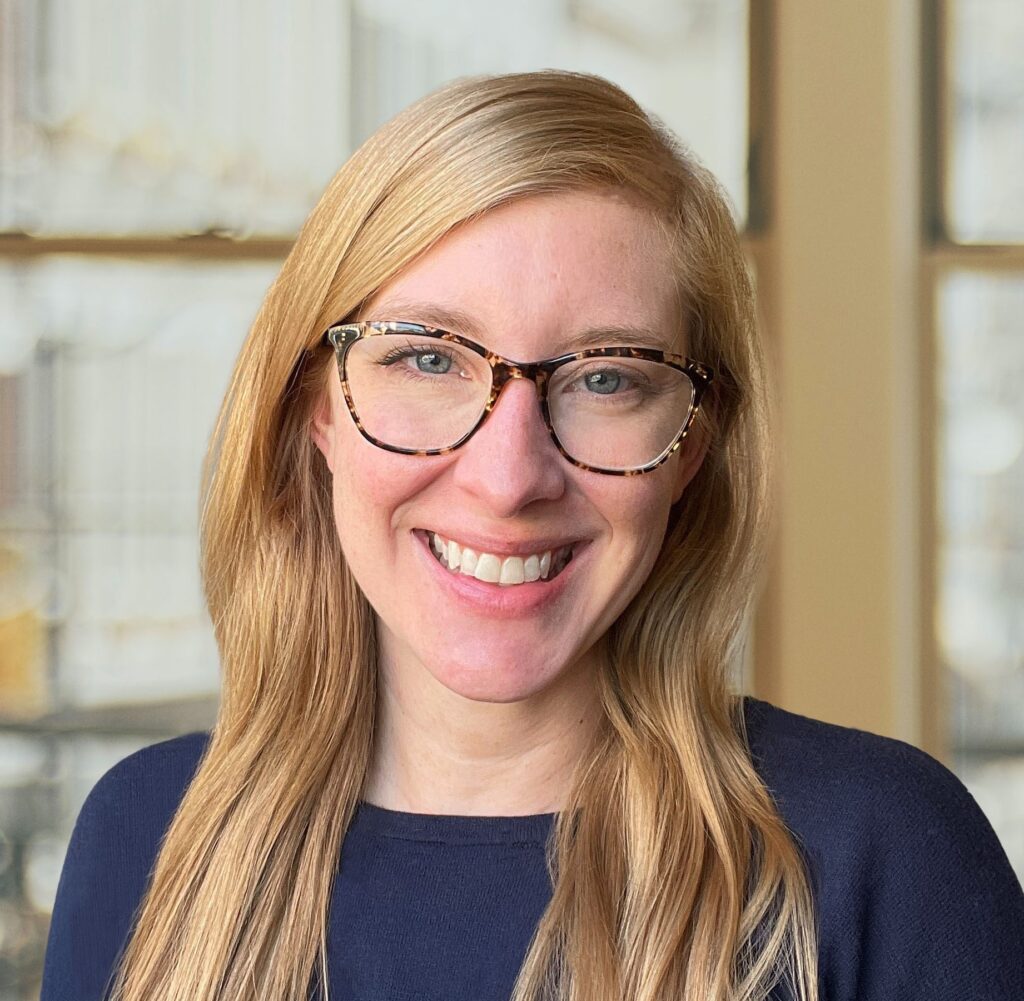
Though Helen Long knew she wanted to be a speech-language-pathologist as a child, it wasn’t until she began working in the field that she realized her true passion was for research. With a PhD from the University of Memphis, a master’s from Florida State University and postdoctoral experience at the University of Wisconsin-Madison, Long seeks to build an evidence base available to clinicians to support early diagnosis and intervention planning for children with disabilities.
1. What are your specific teaching and/or research areas and interests?
My research studies early speech and communication development in children with cerebral palsy (CP) and other neurodevelopmental disabilities. Many people with CP use speech to communicate, but many others are nonverbal and communicate using other methods. We can’t diagnose speech impairments until after children are expected to be speaking, which is during a critical period of development. The earlier we can detect signs of speech impairments, the earlier we can help these kids start using other methods.
My past research has looked as young as infancy to see if early babbling patterns can predict later speech abilities, but my research at CWRU will look more broadly at a range of communication behaviors to look at even more specific potential predictors. I will be teaching classes around these topics, including Speech Sound Disorders and Augmentative and Alternative Communication in the Communication Sciences Program of the Department of Psychological Sciences.
2. What do you look forward to at Case Western Reserve University?
One of the biggest things that drew me to CWRU is the strong emphasis on interdisciplinary collaboration. I am excited to build research and collaborative connections with others in the College of Arts and Sciences, School of Medicine and local hospital/community networks working to enhance the lives of people with disabilities.
3. Do you have any personal goals, hobbies, family, interests that you would like to share?
I am excited to explore the almost overwhelming number of museums, nature centers and parks in the Cleveland area. I also can’t wait to visit Cedar Point for the first time! Professionally, my goal has always been to work toward improving the lives of families and people with communication disorders and to inspire my students to strive to do the same.
4. What’s one piece of advice you have for students?
Don’t strive for perfection. As an undergraduate, I wrote an opinion piece about prioritizing friendships and social experiences over being the “perfect” student with a flawless transcript—and I still believe in that philosophy. College is a crazy short time in your life as you start the rest of your life, and there is nothing else like it. There will be plenty of time to chase perfection in adulthood if you so choose. In the meantime, take some risks and live boldly during your college years.
Afsoon Kazerouni
Visiting Assistant Professor
Earth, Environmental & Planetary Sciences
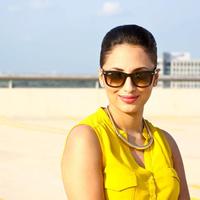
Afsoon Kazerouni is fascinated by how geology can help us unravel Earth’s story billions of years later—and help us shape the future—using fieldwork, laboratory research and theoretical modeling. Prior to joining CWRU, she was a visiting assistant professor of geology at Mercyhurst College in Erie, Pennsylvania, and was a postdoc at Texas Tech University.
1. What are your specific teaching and/or research areas and interests?
My teaching focuses on courses related to weather, climate, and Earth’s dynamic systems. My research interests lie in sedimentology, stratigraphy, and paleoclimatology. I am particularly interested in understanding how past climate changes, recorded in geological formations, can inform predictions about future environmental conditions. My research is focused on geochemistry and diagenesis in sedimentary environments.
2. What do you look forward to at Case Western Reserve University?
I am most looking forward to engaging with a diverse and motivated student body at Case Western Reserve University, as well as collaborating with colleagues across disciplines. The opportunity to contribute to the university’s vibrant research community and to explore new ways to integrate geological sciences into broader environmental and sustainability efforts is particularly exciting.
3. Do you have any personal goals, hobbies, family, interests that you would like to share?
Outside of academia, I enjoy hiking and exploring natural landscapes, which complements my interest in geology. I also love reading about history and different cultures. My goal is to continue traveling to new places, both for research and personal enrichment, to better understand the world and the people in it.
4. What’s one piece of advice you have for students?
One piece of advice I would give students is to remain curious and never stop asking questions. Curiosity is the driving force behind all scientific discovery, and it’s important to cultivate that sense of wonder throughout your academic and professional journey.
Patrick J. Lyons
Assistant Professor
Modern Languages and Literature
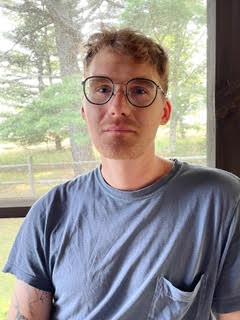
Patrick J. Lyons is a scholar of 20th- and 21st-century French and Francophone culture and literary history. He earned a bachelor’s degree in French from Reed College in Portland, Oregon, and a PhD in French and critical theory from the University of California, Berkeley. From 2023-24, he was a postdoctoral associate in the Department of Modern Languages at Duke University.
1. What are your specific teaching and/or research areas and interests?
I focus primarily on what literature and culture can teach us about the relationship between racism and capitalism, and how we can resist both. I’m also very enthusiastic about detective novels.
2. What do you look forward to at Case Western Reserve University?
Above all I’m looking forward to engaging with the students. I can’t wait to get to know them.
3. Do you have any personal goals, hobbies, family, interests that you would like to share?
I enjoy running and playing music, and now that I’m back in lake country (Minnesotan by birth), I want to try my hand at fishing.
4. What’s one piece of advice you have for students?
When I graduated from college, my advisors told me to 1.) pursue what you love, and 2.) treat it like a vocation. This has never failed me.

